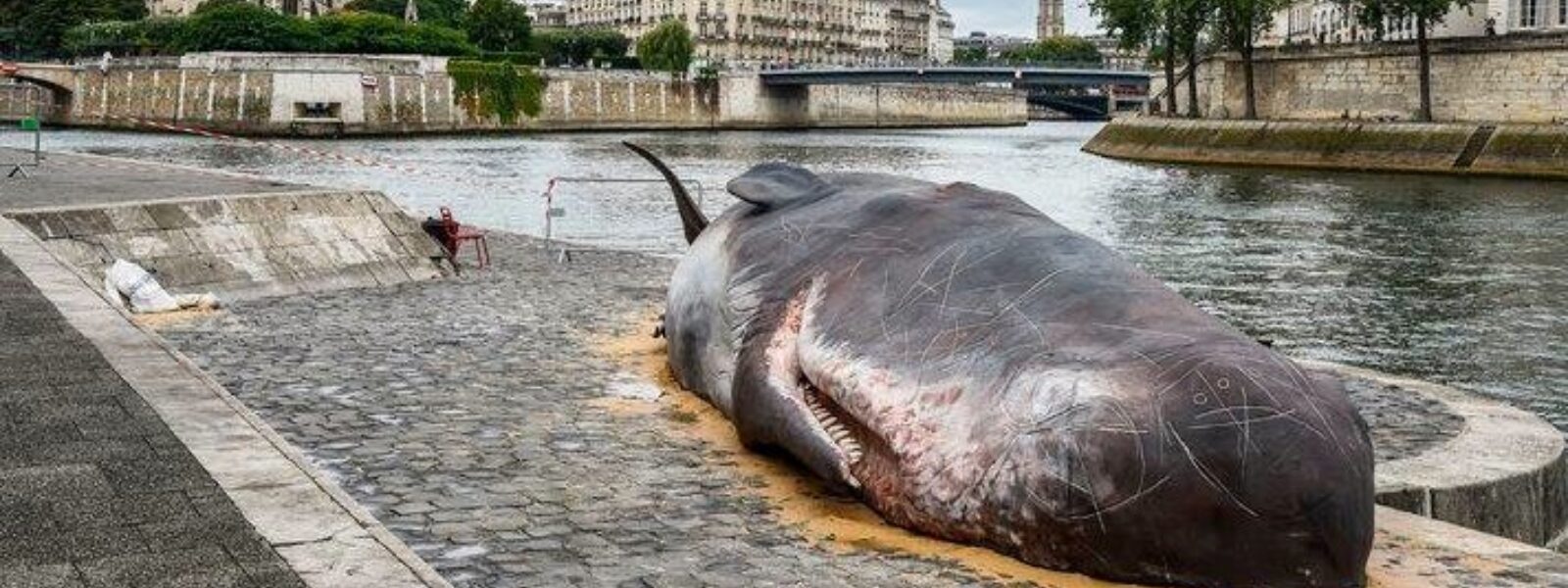

Recently, Parisians rose one morning to find a surprise on the banks of the Seine River – a huge dead sperm whale.
In fact, the dead whale was an elaborate art exhibit by the European group Captain Boomer Collective. The “whale” was hyper-realistic, including smelling like a dead whale (which I can attest is an awful smell) and looking like it was rotting and bloated. Art collective artists even walked around it as if they were scientists studying the corpse.
The sperm whale is misnamed. Early whalers thought the very fine spermaceti oil found in the massive head of the sperm whale was its sperm. Instead, the oil is part of the sperm whale’s elaborate sonar system, being used in the head like a lens to focus sounds emanating from its windpipe and lungs. These sounds reflect off objects in the deep ocean, where no sunlight penetrates, allowing sperm whales to navigate underwater and find their food – mostly deep sea squid.
Sperm whales are known to dive as deep as a mile or more underwater. Their brains are five times larger than the human brain.
The French have a much more elegant name for these whales: the cachalot.
According to Captain Boomer Collective: “The beaching of a whale has always been a magical event. Villages trembled and were exhilarated when it happened. This is what we reconstruct.
“At the same time the beached whale is a gigantic metaphor for the disruption of our ecological system. People feel their bond with nature is disturbed.”
Sperm whales have been hunted relentlessly throughout the history of both early whaling in the 18th and 19th centuries and in the modern whaling era. Nonetheless, the sperm fared better than many other species, as the male is so much larger than the female that whalers targeted males. Since one male can service an entire pod of females, the populations of sperm whales have managed to survive better than most whale species under attack.
While most whaling has ceased, the Fisheries Agency of Japan continues to push “scientific whaling” as a scheme to keep its commercial whaling operations alive and well, at the expense of thousands of whales. Sperm whales have been killed as part of the “research whaling” cruises in the North Pacific Ocean.
Photo credit Captain Boomer Collective.
{embed-1}